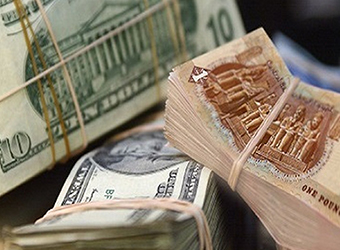The dollar moved back towards a 14-year peak on Wednesday as U.S. debt yields resumed climbing, giving a lift against the safe-haven yen amid strong investor appetite for riskier assets.
The dollar index against a basket of major currencies was up 0.1 percent at 103.30.
The index climbed to a 14-year high of 103.82 the previous day in reaction to the Institute for Supply Management (ISM) numbers, which showed U.S. factory activity accelerated to a two-year high in December.
Late on Tuesday, profit-taking on the dollar in the wake of a pullback in U.S. yields had taken the index towards 103.00.
The euro was down 0.1 percent at $1.0394 after briefly recovering to $1.0423. It hit a 14-year trough of $1.0340 overnight.
Against the Japanese yen, the greenback was up 0.2 percent at 111.970 after slipping to 117.540. The U.S. currency surged overnight to a near three-week peak of 118.605 yen.
The yen, which usually benefits in times of risk aversion, struggled for traction as the region’s risk assets gained. The Nikkei added more than 2 percent in the first trading day of the year.
U.S. Treasury yields had tempered the dollar’s overnight rally by making an about-turn following their initial spike in response to the upbeat ISM data.
Then, amid the risk-on mood, yields rose again, shoring up the dollar.
“The dollar’s moves show just how much the currency depends on Treasury yields for direction,” said Masashi Murata, senior currency strategist at Brown Brothers Harriman in Tokyo.
“While I expect the dollar to be volatile given its close and sensitive link to Treasuries, from a longer-term perspective I see it tracking yields higher this quarter.”
The 10-year Treasury note yield surged to its highest level since September 2014 in December on expectations that U.S. President-elect Donald Trump would introduce reflationary measures backed by large fiscal spending, prompting the Federal Reserve to follow through with a series of interest rate hikes.
The growing consistency of strong U.S. economic reports has also added to expectations of additional tightening by the Fed, which had just hiked rates last month.
Still, the greenback was seen facing potential turbulence ahead of Friday’s highly anticipated U.S. non-farm payrolls report.
“The problem is that the run-up to the Fed’s first rate hike in a year is now over and while policymakers have signaled plans to raise rates three more times this year, the dollar’s sharp rally last quarter invited profit-taking,” wrote Kathy Lien, managing director of FX Strategy for BK Asset Management.
“There are also concerns about how strong Friday’s non-farm payrolls report will be.”
The Australian dollar was up 0.3 percent at $0.7238. The Aussie was on a steady footing after being buoyed the previous day by a survey showing China’s December factory activity picked up faster than expected.
The New Zealand dollar did not fare as well against the broadly higher dollar, slipping 0.2 percent to $0.6903.
The pound was little changed at $1.2238 after stooping overnight to a two-month low of $1.2200.
Source: Reuters


